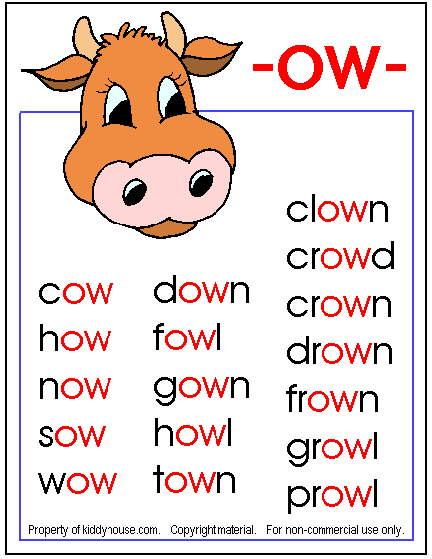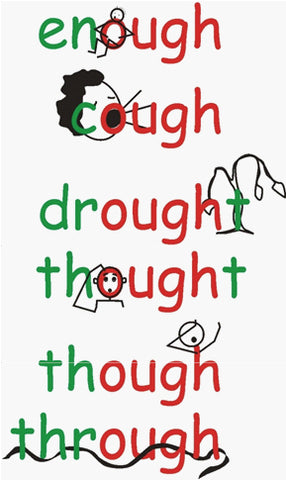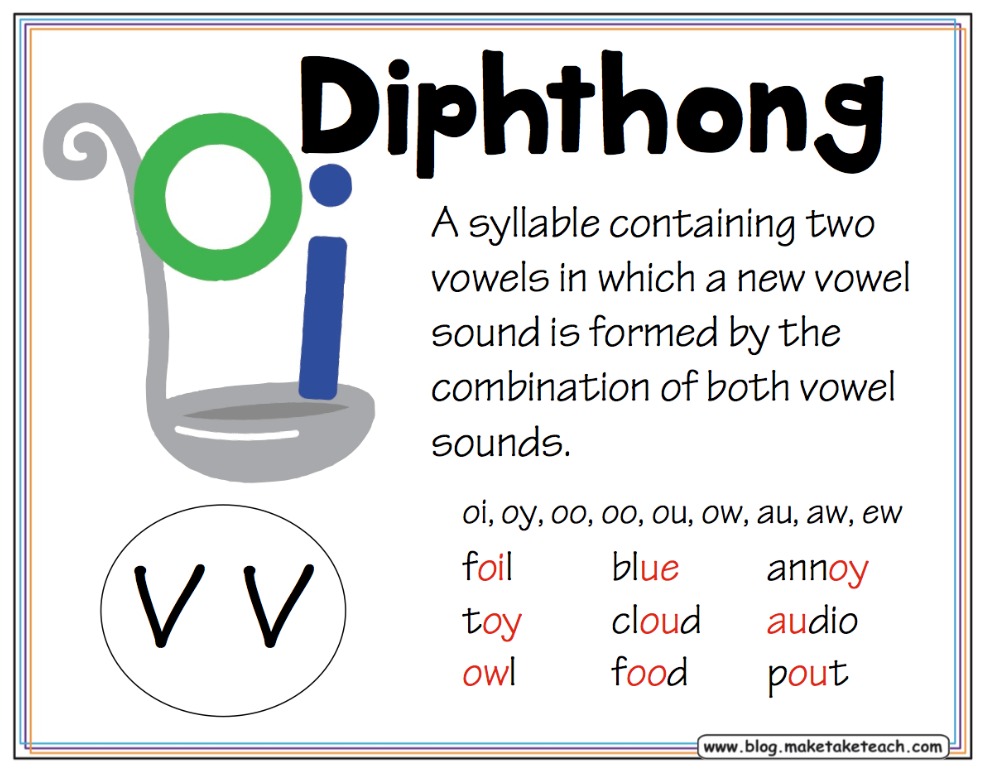RF.2.3.B.i: Know the Sounds That Represent Variant Vowel Combinations (e.g. igh, ough) and Diphthongs (e.g. oy, ow)
Skill
RF.2.3.B.i: Know the Sounds That Represent Variant Vowel Combinations (e.g. igh, ough) and Diphthongs (e.g. oy, ow)
Standard
CCSS.ELA-LITERACY.RF.2.3.B: Know spelling-sound correspondences for additional common vowel teams.
Description
- Mastery: Student is able to isolate variant vowel combinations (e.g. igh, ough) and diphthongs (e.g. oy, ow) in printed/written words containing variant vowel digraphs and/or diphthongs and knows letter-sound correspondence of variant vowel digraphs and diphthongs in isolation.
- Acquiring: Student is able to identify and categorize variant vowel combinations and diphthongs to the appropriate sound with the aid of teacher or when referring to sound/spelling card.
Probes
T: What sound does ____ make? (show cards with aw, igh, ough, ou, au, oy, oo, ow, oi)
S: /ŏ/; /ī/; /ōō/ or /ŏ/ or /ō/ or /oo; /ow/; /ŏ/; /oy/; /oo/ or /ōō/; /ow/; /oy/
T: What are some of the different spellings for /ī/, /ō/, /oo/, /ōō/, /ow/, /ŏ/, and /oy/?
S: igh/ie, oa/oe, oo, oo/u_e/ew, ow/ou, au/aw/ough, oy/oi (student may list some of these spellings)
T: Can you tell me which word has the /oo/ sound? book, soon, cute. S: book
T: Can you tell me which word has the /ow/ sound? cloud, toy, tow. S: cloud
T: Can you tell me which word has the /oy/ sound? foil, train, foul. S: foil
T: Can you tell me which word has the /ōō/ sound? foot, soon, mule. S: soon
T: Can you tell me which word has the /ŏ/ sound? haul, foul, soul. S: haul
Activities and Resources
Small Group Instruction – Direct Instruction
- P.050 Variant Correspondences Flip Manipulating Books
- P.016 Variant Correspondences How Many Words?
- P.018 Variant Correspondences Fishing for Vowel Digraphs
- ow, oy, and ou instruction
- ow, oy, and ou song lyrics
- igh, ie, and i_e- Word Lists and Flash Cards
During Transitions
- T says a word from the word bank (see images below) and S silently march and clap hands to spell the word
- “ou” – Road Racer
- Digraph /au, aw/ Sound – Phonics by TurtleDiary
- Digraph /ow, ou/ Sound – Phonics by TurtleDiary
- Short /oo/ Sound – Phonics by TurtleDairy
- Digraph /oy, oi/ Sound – Phonics by TurtleDiary
- Learn to Read! – Phonics Digraphs and Diphthongs
- Special Sounds OW & OU
- Ow and ou song – 1st graders
- Oi Oy Song – 1st graders
- ‘ee’ – Josephine (The Electric Company)
Reinforce Skills/Independent Work Time – Independent/Small Group Center Activity
- P.019 Letter-Sound Correspondence: Letter Sound Folder Sort
- P.047 Variant Correspondences Canned Sort
- Dragon Word cards students read with a partner
- Lesson 51- oy spelling practice to read with a partner
- Word searches: “ow (snow) norm” and “ow (cow) norm”
- Vowel Sound Phonics Worksheets
- igh practice
- igh “Good Night” poem S can copy
- ow practice- Write & read with a partner
- Diphthongs and vowel team clip cards
Display (e.g. Anchor Chart)
Considerations & Reminders
- Teach students that there are multiple sounds made by ou: /oʊ/ as in “though” (rhymes with “toe”); /uː/ as in “through” (rhymes with “true”); /ʌf/ as in “enough” (rhymes with “tough”); /ɒf/ as in “cough” (rhymes with “off”); /ɔː/ as in “thought” (rhymes with “taut”); /aʊ/ as in “bough” (rhymes with “how”)
 Source: Moore Fun in First Grade
Source: Moore Fun in First Grade Source: Kiddy House
Source: Kiddy House
 Source: Twinkle Teaches
Source: Twinkle Teaches Source: KidsPress Magazine
Source: KidsPress Magazine Source: Make, Take & Teach
Source: Make, Take & Teach